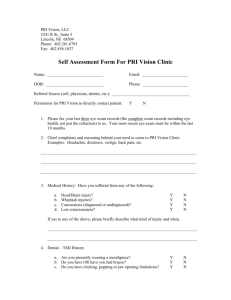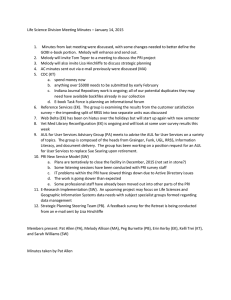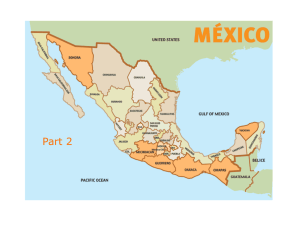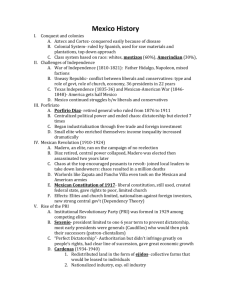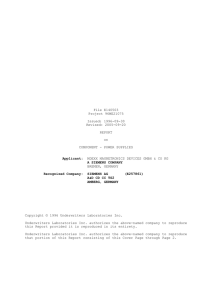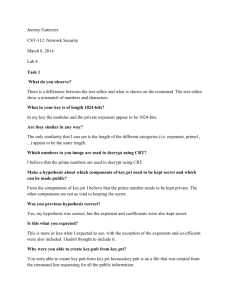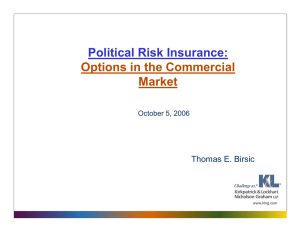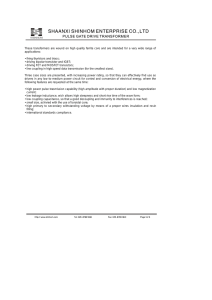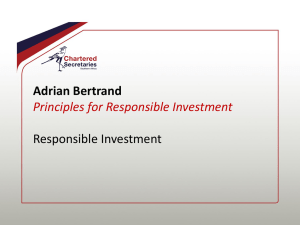Workshop on International Law, Natural Resources and Sustainable Development
advertisement
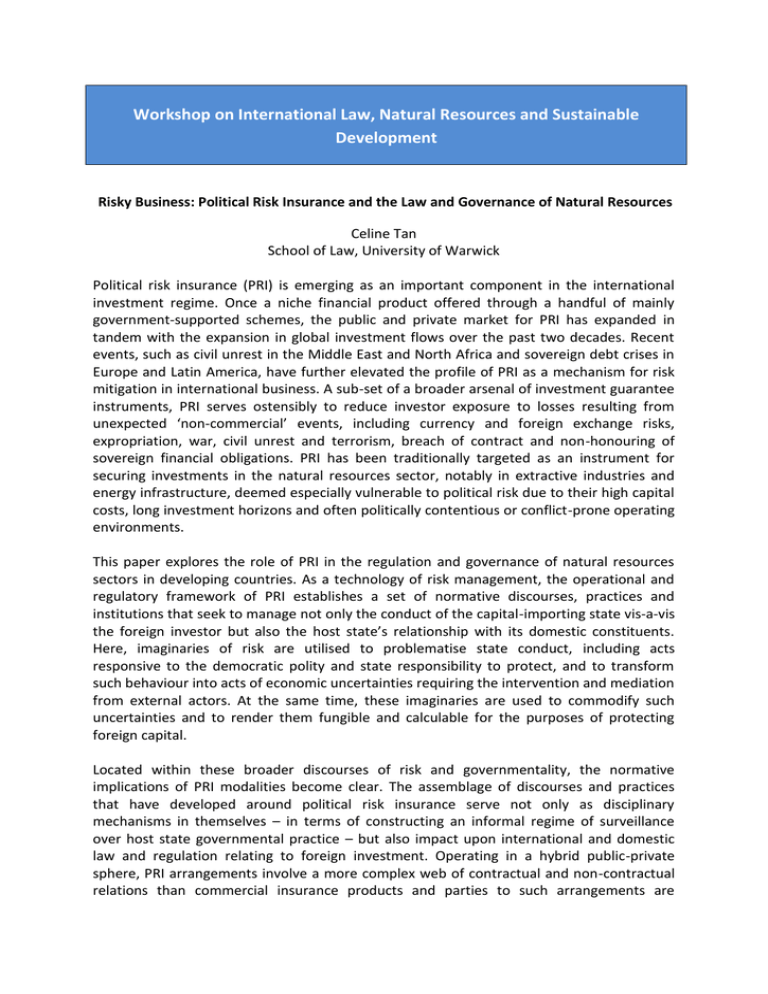
Workshop on International Law, Natural Resources and Sustainable Development Risky Business: Political Risk Insurance and the Law and Governance of Natural Resources Celine Tan School of Law, University of Warwick Political risk insurance (PRI) is emerging as an important component in the international investment regime. Once a niche financial product offered through a handful of mainly government-supported schemes, the public and private market for PRI has expanded in tandem with the expansion in global investment flows over the past two decades. Recent events, such as civil unrest in the Middle East and North Africa and sovereign debt crises in Europe and Latin America, have further elevated the profile of PRI as a mechanism for risk mitigation in international business. A sub-set of a broader arsenal of investment guarantee instruments, PRI serves ostensibly to reduce investor exposure to losses resulting from unexpected ‘non-commercial’ events, including currency and foreign exchange risks, expropriation, war, civil unrest and terrorism, breach of contract and non-honouring of sovereign financial obligations. PRI has been traditionally targeted as an instrument for securing investments in the natural resources sector, notably in extractive industries and energy infrastructure, deemed especially vulnerable to political risk due to their high capital costs, long investment horizons and often politically contentious or conflict-prone operating environments. This paper explores the role of PRI in the regulation and governance of natural resources sectors in developing countries. As a technology of risk management, the operational and regulatory framework of PRI establishes a set of normative discourses, practices and institutions that seek to manage not only the conduct of the capital-importing state vis-a-vis the foreign investor but also the host state’s relationship with its domestic constituents. Here, imaginaries of risk are utilised to problematise state conduct, including acts responsive to the democratic polity and state responsibility to protect, and to transform such behaviour into acts of economic uncertainties requiring the intervention and mediation from external actors. At the same time, these imaginaries are used to commodify such uncertainties and to render them fungible and calculable for the purposes of protecting foreign capital. Located within these broader discourses of risk and governmentality, the normative implications of PRI modalities become clear. The assemblage of discourses and practices that have developed around political risk insurance serve not only as disciplinary mechanisms in themselves – in terms of constructing an informal regime of surveillance over host state governmental practice – but also impact upon international and domestic law and regulation relating to foreign investment. Operating in a hybrid public-private sphere, PRI arrangements involve a more complex web of contractual and non-contractual relations than commercial insurance products and parties to such arrangements are inserted into a much more intricate framework of legal and political governance, with correspondingly broader international and domestic implications. In natural resources projects where tensions regularly exist between the interests of the foreign investor, the host state and local communities, PRI arrangements can reframe the terms of engagement between these various stakeholders and redefine the host state’s engagement with the broader international community. The normative effects of PRI as an insurantial risk technology thus can and do have significant distributional effects, realigning the burden of risk and responsibility between various stakeholders and further disembedding foreign capital from the social and economic polity in host states.
